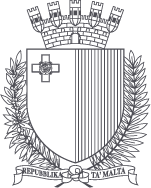Posted on April 19, 2023 by joseph-ciprian.magro@gov.mt -
The Permanent Commission Against Corruption (PCAC) is established by virtue of Chapter 326 of the Laws of Malta and is composed of a chairman and two members.
Main Function of the Commission are:
- To consider alleged or suspected corrupt practices and to investigate such allegations or suspicions when it determines that there are sufficient grounds for an in-depth investigation.
To investigate the conduct of any public officer, including Ministers or Parliamentary Secretaries, which in the opinion of the Commission may be corrupt or may be connected with or may be conducive to corrupt practices.
- To investigate the conduct of any person who is or had been entrusted with functions relating to the administration of a partnership or other body in which the Government, local government, statutory body etc has a controlling interest or effective control, where the Commission is of the opinion that such conduct could be corrupt or connected with or conducive to corrupt practices.
- To investigate the practices and procedures of government departments, local government authorities, statutory bodies or other bodies in which the Government has a controlling interest or effective control in order to facilitate the discovery of any corrupt practices and to recommend the revision of work methods or procedures that could be conducive to corrupt practices.
- To instruct, advise and assist Ministers or other persons who are entrusted with the administration of government departments and other bodies where the Government has a controlling interest or effective control on ways in which corrupt practices could be eliminated.
Posted on April 19, 2023 by joseph-ciprian.magro@gov.mt -
The main role and responsibility of the Law Commission is to examine laws, suggest laws that that could be combined, and make sure that there are no conflicts between the Maltese and English versions.
Posted on April 19, 2023 by joseph-ciprian.magro@gov.mt -
The Asset Recovery Bureau has been established under Legal Notice 357 of 2015, known as the Asset Recovery Bureau Regulations.
The Bureau is an autonomous public entity governed by a Board led by a Chairperson is responsible for policy making and a Directorate headed by a Director responsible for the implementation of the provisions of the Asset Recovery Bureau Regulations and the execution of policy as established by the Board.
The functions of the Asset Recovery Bureau can be divided into three main categories:
- Tracing of Assets
- Asset Management
- Assets Disposal
Posted on April 19, 2023 by joseph-ciprian.magro@gov.mt -
The Office of the Information and Data Protection Commissioner is the national supervisory authority responsible for monitoring and enforcing the provisions of the GDPR and the Data Protection Act.
This Office is also responsible to enforce the provisions of the Freedom of Information Act and ensure that public authorities observe the requirements thereof.
The IDPC’s Objectives:
- Introduce a culture where safeguarding data protection rights is not seen as a legal burden but a natural process that forms an integral part of organisations’ operations.
- Increase the level of trust for the general public to be confident that their personal data is used in accordance with the requirements deriving from data protection law.
- Be a relevant and an effective regulatory body particularly in the enforcement of data protection rules by taking the appropriate corrective action against controllers who infringe the provisions of the GDPR.
- Assist micro and small enterprises in complying with the GDPR.
- Strive to take initiatives to raise data protection awareness and use dedicated EU funds to achieve this objective.
- Contribute to the consistent application of the GDPR by cooperating with his European Counterparts through the consistency mechanism.
- Ensure that every public authority upholds acceptable standards to ensure transparency and good governance in the conduct of their operations.
Posted on April 19, 2023 by joseph-ciprian.magro@gov.mt -
The Directorate for Data Protection and Information Coordination acts as a point of reference for matters relating to Data Protection, FOI and the Protection of the Whistleblower Act. It ensures that administrative procedures in relation to these laws are followed within the Ministry as well as the public administration. The DPIC also maintains a register of DPOs, FOI officers and WROs. In view of its role the DPIC works closely with IPS (Institute for the Public Service) to provide training to officers within the public administration.






